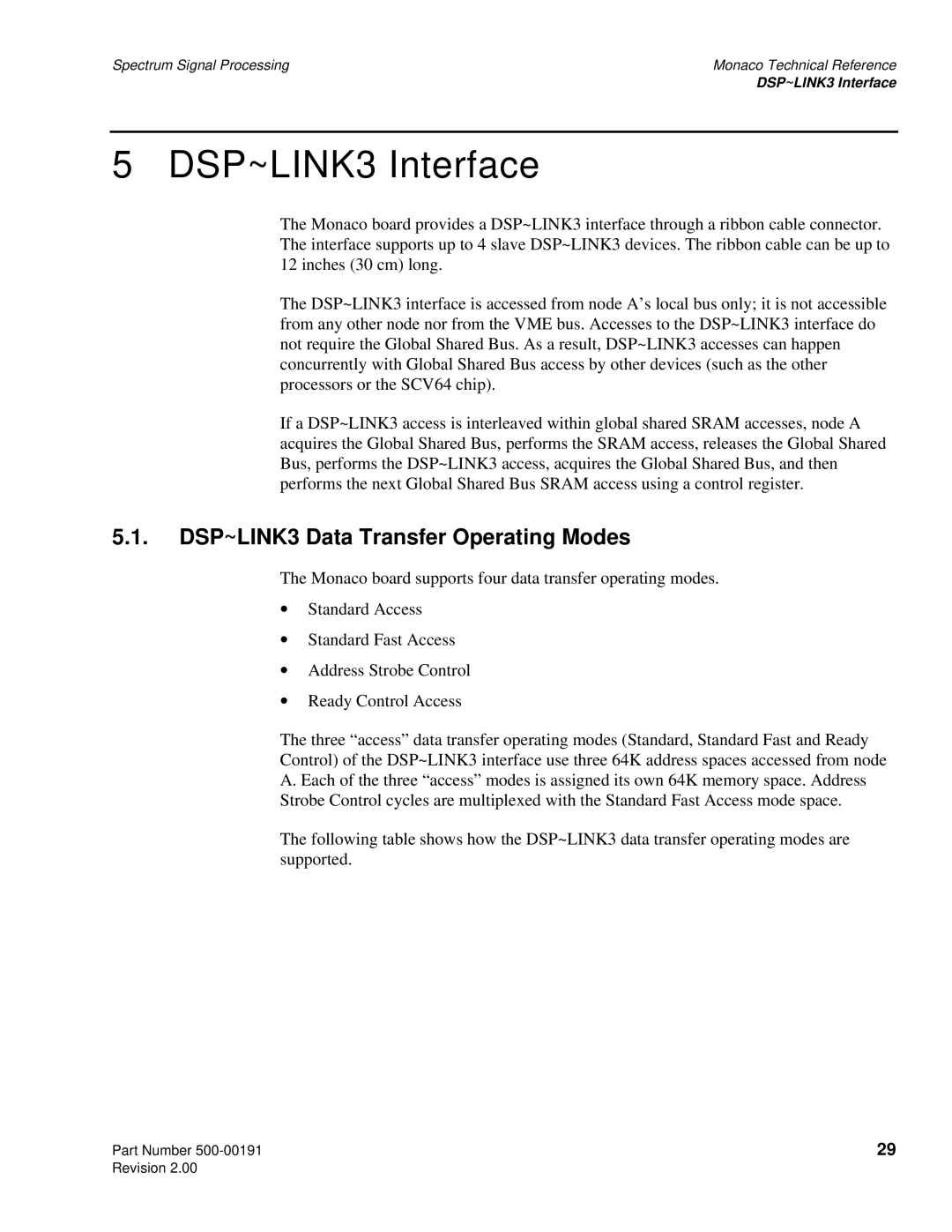Spectrum Signal Processing | Monaco Technical Reference |
| DSP~LINK3 Interface |
5 DSP~LINK3 Interface
The Monaco board provides a DSP~LINK3 interface through a ribbon cable connector. The interface supports up to 4 slave DSP~LINK3 devices. The ribbon cable can be up to 12 inches (30 cm) long.
The DSP~LINK3 interface is accessed from node A’s local bus only; it is not accessible from any other node nor from the VME bus. Accesses to the DSP~LINK3 interface do not require the Global Shared Bus. As a result, DSP~LINK3 accesses can happen concurrently with Global Shared Bus access by other devices (such as the other processors or the SCV64 chip).
If a DSP~LINK3 access is interleaved within global shared SRAM accesses, node A acquires the Global Shared Bus, performs the SRAM access, releases the Global Shared Bus, performs the DSP~LINK3 access, acquires the Global Shared Bus, and then performs the next Global Shared Bus SRAM access using a control register.
5.1.DSP~LINK3 Data Transfer Operating Modes
The Monaco board supports four data transfer operating modes.
∙Standard Access
∙Standard Fast Access
∙Address Strobe Control
∙Ready Control Access
The three “access” data transfer operating modes (Standard, Standard Fast and Ready Control) of the DSP~LINK3 interface use three 64K address spaces accessed from node A. Each of the three “access” modes is assigned its own 64K memory space. Address Strobe Control cycles are multiplexed with the Standard Fast Access mode space.
The following table shows how the DSP~LINK3 data transfer operating modes are supported.
Part Number | 29 |
Revision 2.00 |
|
